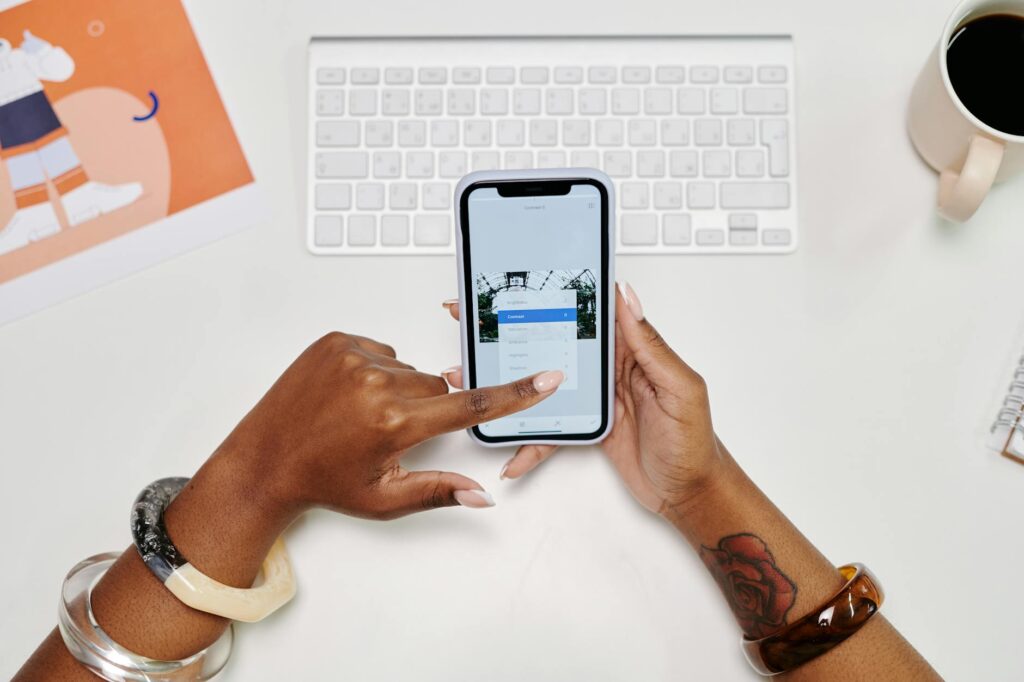What is organizational apps?

What is organizational apps?
In today’s fast-paced world, staying organized can feel like an uphill battle. You juggle tasks, deadlines, and priorities, all while trying to maintain a semblance of work-life balance. This is where organizational apps come into play. These tools are designed to streamline your tasks, manage projects, and enhance productivity, making your life a lot easier.
Imagine having a personal assistant right in your pocket that helps you keep track of everything—from your next meeting to your grocery list. That’s the magic of organizational apps.
Understanding Organizational Apps
So, what exactly are organizational apps? At their core, these applications help individuals and teams manage their time, resources, and projects. They provide a range of features that can transform the way you work and interact with your tasks. Whether you’re a student trying to keep up with assignments or a professional managing multiple projects, organizational apps can be your best ally.
Types of Organizational Apps
Organizational apps aren’t all created equal. They come in various types, each serving specific purposes:
-
Task Management Apps: Apps like Todoist and Asana allow you to create, assign, and track tasks. They help you break down your workload into manageable pieces.
-
Note-Taking Apps: Evernote and Microsoft OneNote enable you to jot down ideas, make lists, and store information in an organized manner.
-
Scheduling Apps: Tools like Google Calendar and Calendly help you manage your time by scheduling meetings and appointments efficiently.
-
Project Management Apps: Apps like Trello and Monday.com assist teams in managing projects, tracking progress, and collaborating effectively.
By understanding the different types of organizational apps, you can choose the ones that best meet your needs.
Key Features of Organizational Apps
When evaluating organizational apps, it’s important to look for certain features that enhance their usability:
-
Collaboration Tools: Many organizational apps offer features that allow team members to work together seamlessly, such as shared boards or task assignments.
-
Integration Capabilities: The ability to integrate with other applications (like email, calendars, and cloud storage) can significantly enhance productivity.
-
User-Friendly Interface: An intuitive design ensures that you spend less time figuring out the app and more time using it effectively.
These features can make a substantial difference in how effectively you can organize your tasks and projects.
Benefits of Using Organizational Apps
The advantages of leveraging organizational apps extend beyond mere task management. Here’s how they can enhance your productivity:
Improving Time Management
One of the primary benefits of using organizational apps is improved time management. These tools help you prioritize tasks and set deadlines. For instance, you can break down larger projects into smaller tasks, making them less overwhelming. This structured approach allows you to allocate your time better and focus on what truly matters.
Enhancing Work-Life Balance
Have you ever felt like your work spills over into your personal life? Organizational apps can help minimize that overlap by allowing you to schedule tasks, set boundaries, and remind you when it’s time to unplug. By streamlining daily tasks, these apps contribute significantly to achieving a healthier work-life balance.

Photo by Darlene Alderson
Choosing the Right Organizational App
Choosing the right organizational app can feel daunting, given the plethora of options available. Here are some factors to consider:
Assessing Personal Needs
Before you dive into the sea of organizational apps, take a moment to assess your specific productivity needs. Are you looking for a robust project management tool, or do you simply need a task list? Understanding your requirements will guide you in selecting the most suitable app.
Exploring Popular Options
Once you know your needs, it’s time to explore popular organizational apps. For instance:
- Trello: Excellent for visual project management.
- Todoist: Ideal for simple task management and daily planning.
- Google Calendar: Great for scheduling and reminders.
Each of these apps has unique strengths that cater to different organizational needs.
Conclusion
In conclusion, organizational apps play a crucial role in enhancing productivity and personal development. They help you manage tasks effectively, improve time management, and maintain a healthy work-life balance. With the right app, you can transform your chaotic schedule into a well-oiled machine, allowing you to focus on what truly matters. So, why not take the plunge and find the organizational app that works for you? You might just find it to be the productivity boost you need!
For more insights on the best tools to keep you organized, check out this list of 10 Best Productivity Apps to Keep You Organized at Work.